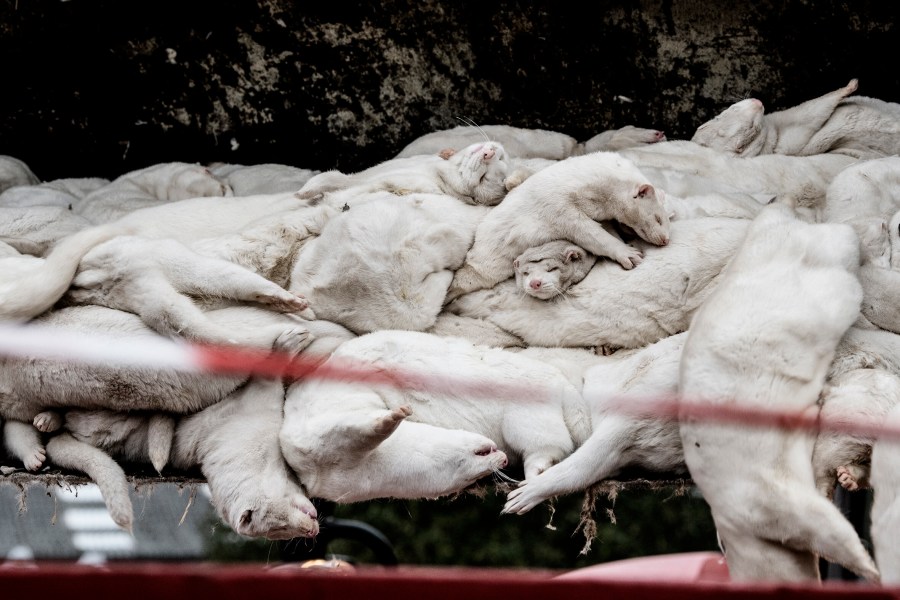CLACKAMAS COUNTY, Ore. (KOIN) — A mink farm in Oregon will remain under quarantine until two successive rounds of testing show no traces of COVID-19, after the owner reported an outbreak among staff and the animals.
The owner and employees contracted COVID-19 first, then spread it to the mink, not the other way around, Oregon Department of Agriculture State Veterinarian Ryan Scholz told KOIN 6 News on Thursday.
“The people picked it up out in the community and brought it to the farm,” Scholz said.
Authorities have not said where the farm is located. Only seven farms in Oregon are currently raising mink.
All 10 samples from the farm came back positive for the virus, the ODA announced Friday. They are the only animal cases confirmed in the state of Oregon, according to the US Department of Agriculture.
SARS-CoV-2 is the virus that causes COVID-19 in humans. Mink seem especially susceptible to SARS-CoV-2, which spreads like wildfire among the mammals.
Denmark plans to kill all of its mink — up to 17 million animals — in an attempt to prevent transmission to humans, but U.S. authorities say the risk of the virus jumping to humans is low, almost negligible if managed properly.

“Because these are rural areas, there’s generally not a neighbor 100 feet away,” Scholz said. In studies, the virus has not been found to be aerosolized beyond the barns, he added.
Although traces of the virus are sometimes found in the litter underneath the cages, it is at a very low level.
“It’s not known whether it would even be enough to infect a person,” Scholz said.
Authorities are still taking steps to mitigate risks, keeping the farm under quarantine until two sets of tests, spaced 14 days apart, show there is no virus left on the farm. No mink products or equipment that has been near the mink can leave the farm.
Wildlife officials will also trap and test small rodents and larger animals like raccoons and skunks on the farm and surrounding properties to make sure the virus has not spread.
Tuesday, the Center for Biological Diversity sent a letter to Oregon Governor Kate Brown demanding the state release more information about the outbreak — as well as the location of the farm — and take further measures including quarantining all mink farms, halt breeding programs, and coordinate a government buy-out program for the state’s mink farms.
Interestingly, no mink have died from the virus at the Oregon farm, according to Scholz. The symptoms presented mildly in the rodents and resolved in about 36 hours, he said, making him hopeful that they won’t find traces of the virus when they return to the farm next week for further testing.
